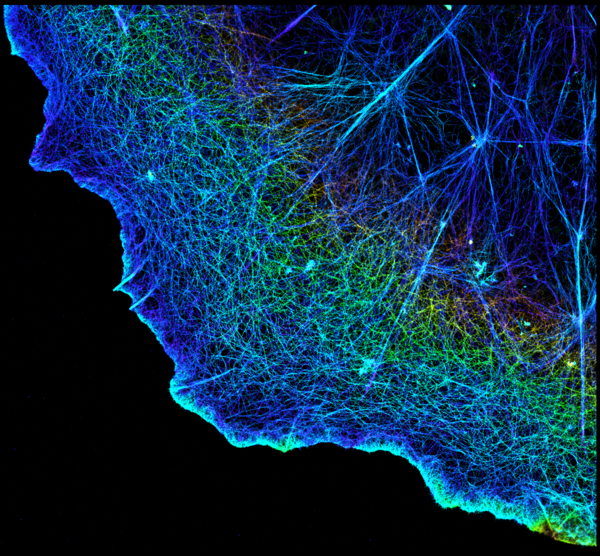Hi! I’m Ethan Buchman. I grew up in Toronto, Canada, but spent many years in lovely Guelph.
I co-founded the Cosmos and Tendermint projects, run Informal Systems, and am now focused on building Cycles. I have a background in biophysics and computer science, and more recently have been studying the history of monetary and financial institutions.
What is Cosmos?
Cosmos is a political economic philosophy emphasizing sovereignty and interoperability for the world’s communities. Cosmos pioneered the “app-chain thesis” and produced some of the most valuable production software for building custom blockchains (CometBFT, IBC, Cosmos-SDK). I recently transitioned out of my role in Cosmos to focus full-time on Cycles.
What is Cycles?
Cycles is a platform for capital-efficient finance. It’s an open clearing protocol designed to clear the most debt for the most people with the least money. Cycles combines privacy-preserving tech (TEEs and ZKPs) with graph algorithms to provide a novel approach to payments, credit, money, and finance with widespread risk-reducing benefits both systemically and to individuals. It is the culmination of years of studying the monetary and financial system and my take on one of the best possible use-cases of blockchain tech.
See the whitepaper and this talk for an overview.
Education
My master’s thesis has been widely cited and provides a seminal introduction to Tendermint and Proof of Stake systems, and contextualizes the development of blockchain technology in the history of academic distributed systems research. Blockchains represent the natural evolution of database systems towards a multi-stakeholder context.
My undergraduate work focused on the biophysics of organisms, the origin of life, and the thermodynamics of sustainability. That work has heavily informed my political economic thinking. We live in a biophysical reality.
These days I’m focused on monetary and financial history and institutional design. I’m quite active at the Mimbres School.
More
Find me on twitter.
I’m also an associate at the Creative Destruction Lab.
I have a quasi-maintained CV.
I’ve gone through a few blogging platforms over the years, first on blogspot, then on wordpress. Now I host this blog on github.
I explore a lot of my ideas in conference talks, podcasts, and interviews, which you can find on the Media page.
Quotes
Some quotes I’m fond of:
“Everyone can create money; the problem is to get it accepted“
- Hyman Minsky
“Once in a while you get shown the light in the strangest of places if you look at it right”
- Robert Hunter
“Human beings were invented by water as a device for transporting itself from one place to another.”
- Tom Robbins
“There is a theory which states that if ever anyone discovers exactly what the Universe is for and why it is here, it will instantly disappear and be replaced by something even more bizarre and inexplicable.
There is another theory which states that this has already happened.”
- Douglas Adams
The profile picture is a super-resolution image of actin filaments in a kidney cell (Xu et al. Nature Methods 9: 185-188 (2012)). I believe that cellular biophysical mechanics (cytoskeleton, extra-cellular matrix, collagen networks, etc.) are perhaps more fundamental to understanding multi-cellular organisms than sequences of DNA. Your DNA wouldn’t even be able to replicate itself were it not for the microtubules.
